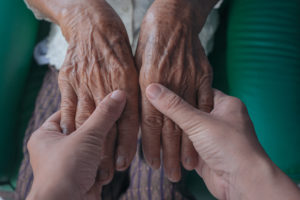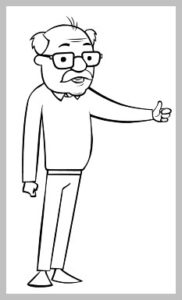Pharmacists Are a Big Help for Aging Adults
Who knew? Who knew that pharmacists were a big help for aging adults?
About two decades ago, I had a friend that was going to school to become a pharmacist. At the time, I did not really have a clue what that meant. My only interaction with pharmacists to that point in my life was to drop off and pick up prescriptions at my local Walgreens and CVS.
Boy was I wrong. For those adults in the “senior” category, A pharmacist does a lot more than just give our prescription medication. They are really valuable members of a much larger interdisciplinary team that cares for older individuals. They are part of the healthcare team for each of us and can improve an elderly patient’s care.
Perhaps the most common pharmacists that we all know are the retail pharmacists. They frequently see patients or their family members and caregivers. There are also geriatric pharmacists who specialize in the care of older adults. You may run into a geriatric pharmacist in a nursing, assisted living or hospice facility. Of course there are also pharmacists found in the hospitals that are part of a coordination of healthcare professions. They also might be preparing IV bags, oral syringes, and more.
Some of the ways that pharmacists can help:
- Medication use and adherence – They can educate older adults, caregivers, and families on how to take certain drugs.
- Medication management – The average adult over age 65 takes between 14 and 18 different prescription medications every year. Open communication between the patient, doctor, and pharmacist helps the patient manage their multiple prescriptions.
- Information source for patients and their family – The pharmacist can teach seniors, caregivers, and families how to use drug calendar reminders, drug dispensing devices and pill crushers.
- Tailored care – Supplying drugs to patients in ways that are accessible to them, such as providing easy open bottles or pills without wrappers, printing drug labels in large type or in the patient’s native language.
- Positive Health outcomes – At least one study shows that the pharmacist’s role helped lead to a reduction in falls and better medication optimization.
#medicationmanagement #medication #prescription #prescriptiondrugs #pharmacy #pharmacist #pharmacists #veterans #seniorcare #seniorcaregiver #seniors #caregiver #caregivers #caregiversupport #homecare #homecareservice #elder #elders #health #dementia #dementiaawareness #alzheimers #alzheimersawareness #alzheimerssociety #parkinsonsdisease










 More and more of our aging family members want to remain in their homes, yet their homes may not be the safest place for them – yet! Keeping their independence is important to many seniors, and ensuring a safe home can help prevent accidents. There may need to be various modifications needed for them to safely stay at home.
More and more of our aging family members want to remain in their homes, yet their homes may not be the safest place for them – yet! Keeping their independence is important to many seniors, and ensuring a safe home can help prevent accidents. There may need to be various modifications needed for them to safely stay at home.


